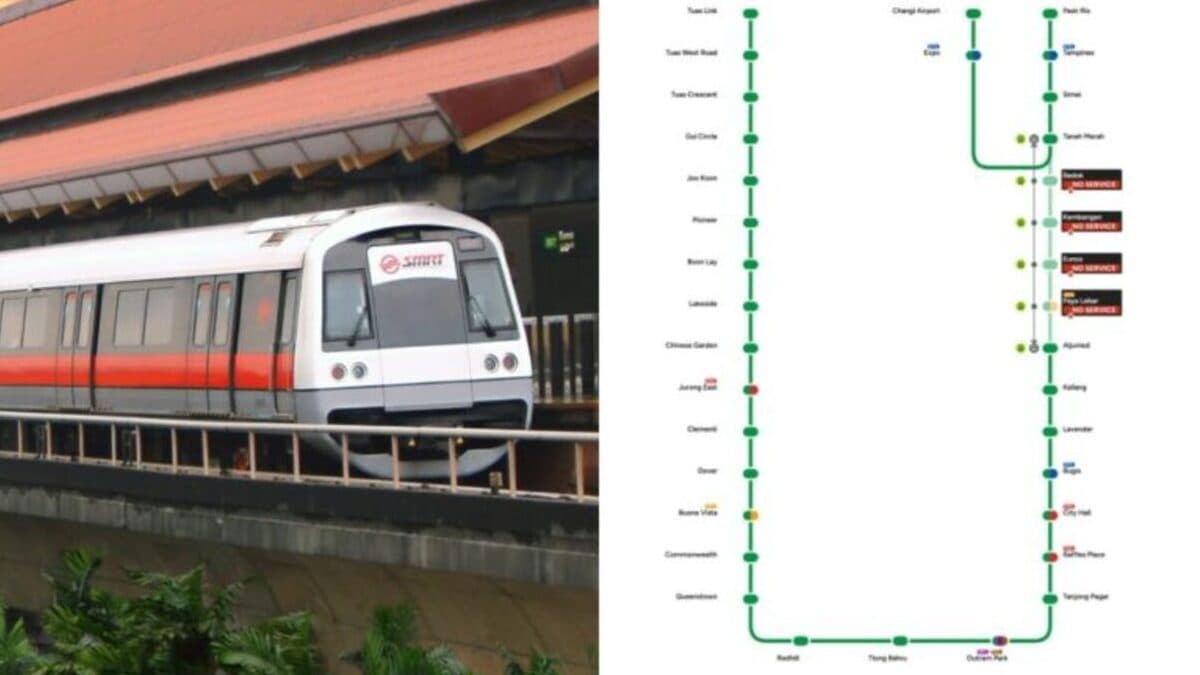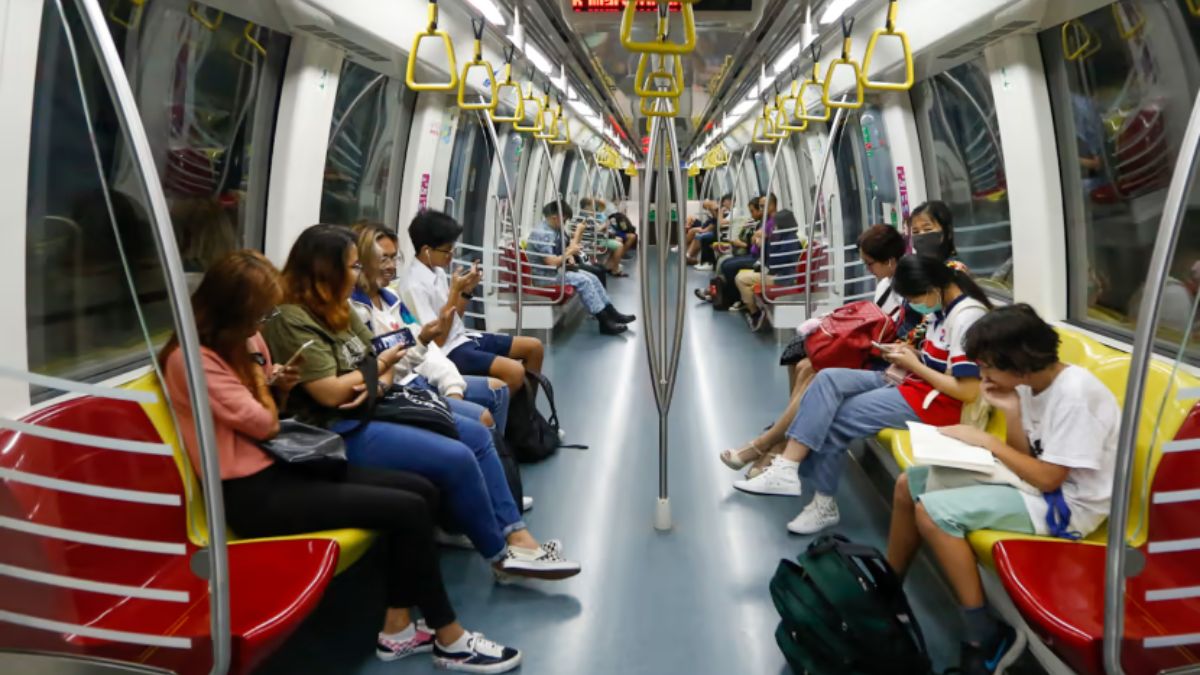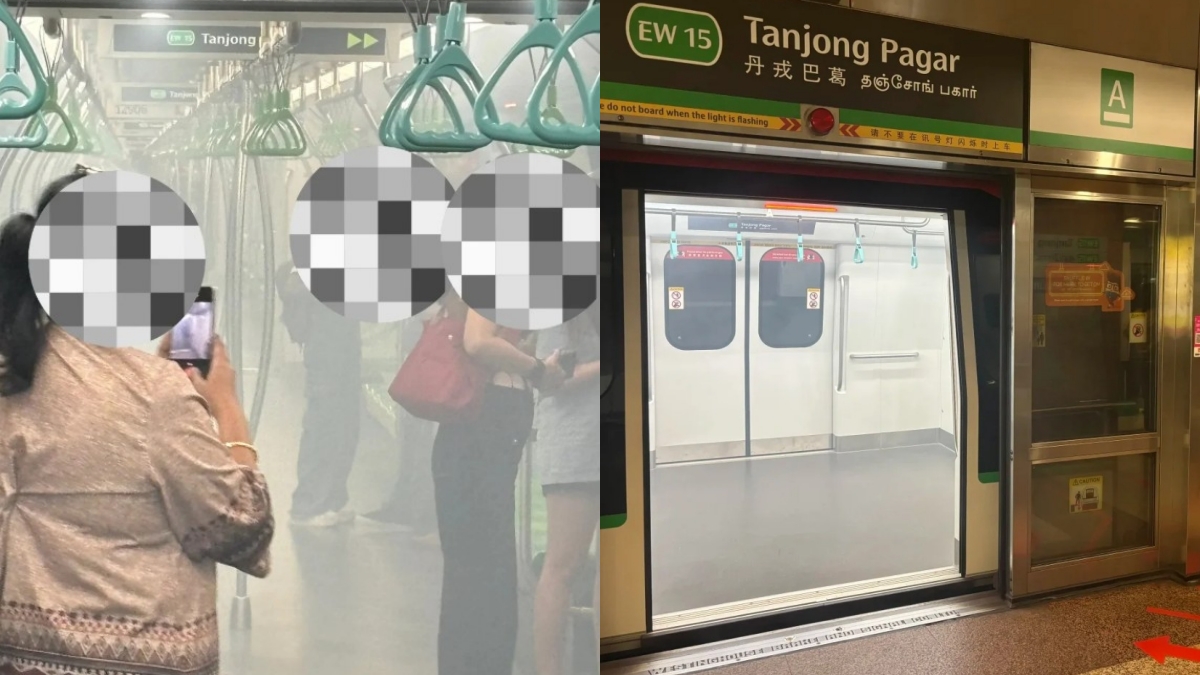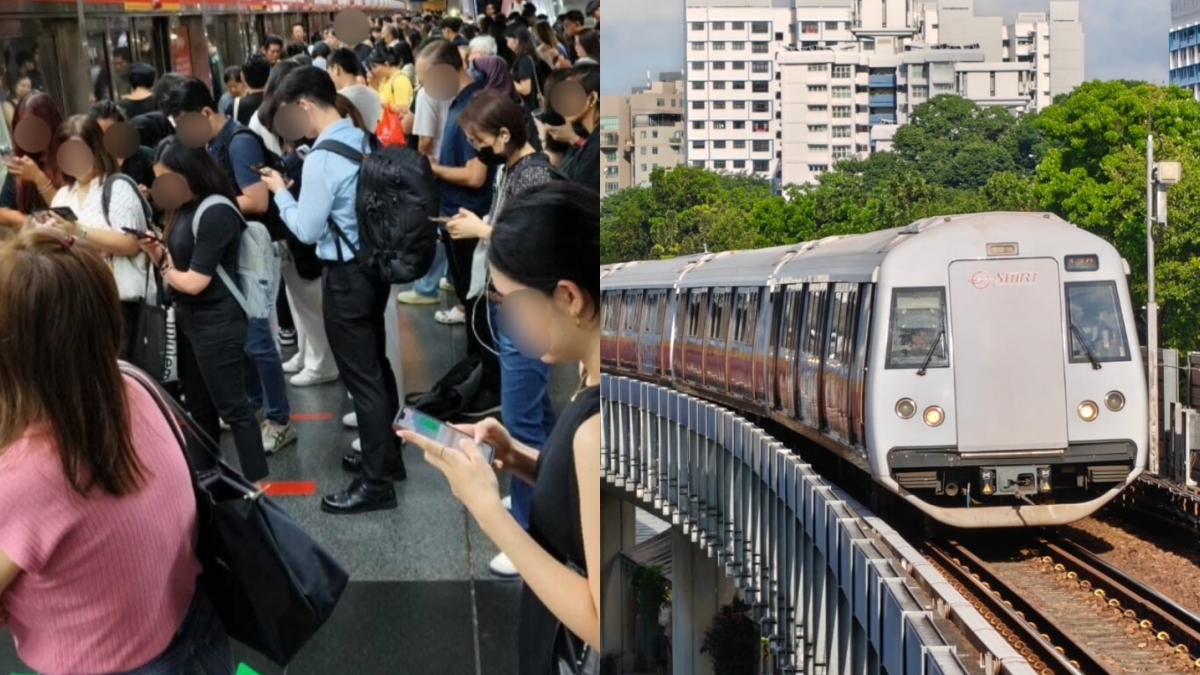East-West Line hit by late-night power fault disrupting six stations; normal service resumes by dawn
Train services on Singapore’s East-West Line were disrupted late on 16 September 2025 due to a fault in the Uninterruptible Power Supply (UPS) system, which caused a signalling failure between Aljunied and Tanah Merah. Services resumed by 4.30am, after a five-and-a-half-hour suspension that affected thousands of late-night commuters.

- A power fault in the UPS system disrupted East-West Line train services between Aljunied and Tanah Merah from 11pm on 16 September to 4.30am the next day.
- Six stations were affected, and free bus services were provided to assist commuters.
- The incident marked the fourth MRT disruption in September, raising reliability concerns.
SINGAPORE: Train services along the East-West Line (EWL) between Aljunied and Tanah Merah stations were disrupted late on 16 September 2025 after a fault in the Uninterruptible Power Supply (UPS) system led to a signalling failure, SMRT Trains said in an official update early the next morning.
The fault began around 11pm and affected six stations — Aljunied, Paya Lebar, Eunos, Kembangan, Bedok, and Tanah Merah.
Normal train services resumed by 4.30am on 17 September, according to the operator.
SMRT acknowledged the incident in a 4.30am post, stating: “Train services on the East-West Line are operating normally. We apologise for the disruption and inconvenience caused, and thank you for your patience and understanding.”
Commuters caught off guard by late-night suspension
The disruption, which struck about an hour before regular service closure, left late-night commuters scrambling for alternatives.
Free bridging and regular bus services were activated between the affected stations.
SMRT also advised commuters to use alternative train routes via the Thomson-East Coast Line, Circle Line, or Downtown Line.
For those travelling towards Pasir Ris and Changi Airport, guidance was issued to transfer to the Downtown Line at Bugis station.
Throughout the incident, SMRT provided updates via its social media platform X (formerly Twitter).
At 11pm, the operator first warned commuters to expect an additional 20 minutes of travel time due to a signalling fault.
Just nine minutes later, at 11.09pm, the situation escalated to a full suspension of train services between Aljunied and Tanah Merah.
By 11.17pm, SMRT confirmed there was no service along the affected stretch and announced that free bus services were being deployed.
Station staff were also on-site to help guide passengers to alternative transport.
By 12.50am, the last bridging bus passengers were assisted in transferring to the final train at Tanah Merah towards Pasir Ris.
At 1.01am, SMRT announced that all train and bus operations had concluded for the night.
Fault traced to UPS system supporting signalling network
In a statement released on 17 September, SMRT Trains president Lam Sheau Kai said the issue originated from the UPS system, which powers the line’s signalling network.
“Our staff were immediately deployed to assist commuters, and engineers were on-site to carry out rectification works,” Lam said.
Announcements were made onboard trains and in stations to update commuters, and online notices were issued throughout the incident.
Lam added that investigations were ongoing to determine the root cause of the UPS malfunction, and that steps would be taken to prevent recurrence.
Fourth MRT disruption this month
The 16 September fault marks the fourth MRT service disruption reported in September.
On 14 September, a train fault caused a 40-minute delay on the North-South Line between Newton and Ang Mo Kio stations.
Earlier in the month, on 2 September, another train fault delayed services on the same line between Woodlands and Yishun stations.
On 1 September, a service interruption on the Circle Line affected three stations between Marina Bay and Promenade in the morning peak due to a separate train fault.
These incidents add to a growing list of rail disruptions in recent months, prompting renewed public concern over system reliability.
Broader questions over rail resilience
Transport analysts note that while the UPS system is designed to maintain signalling stability during power fluctuations, its failure can trigger cascading faults that suspend train operations.
Such failures are rare but disruptive, particularly when they occur during peak or late-night hours when commuters have fewer alternatives.
The Land Transport Authority (LTA) has said it is working with SMRT to improve fault detection and predictive maintenance measures for critical systems such as signalling and power supply.
The latest disruption came just hours before another major service fault on the Thomson-East Coast Line the following morning, raising questions about the readiness of newer systems to cope with operational strain.
Acting Transport Minister Jeffrey Siow, commenting earlier this month on the string of incidents, described the situation as “disappointing” and stressed that transport operators “can and will do better.”
He reiterated that efforts are underway across the “One Transport family” — including the LTA, SMRT, and SBS Transit — to strengthen preventive maintenance and technical resilience.












0 Comments